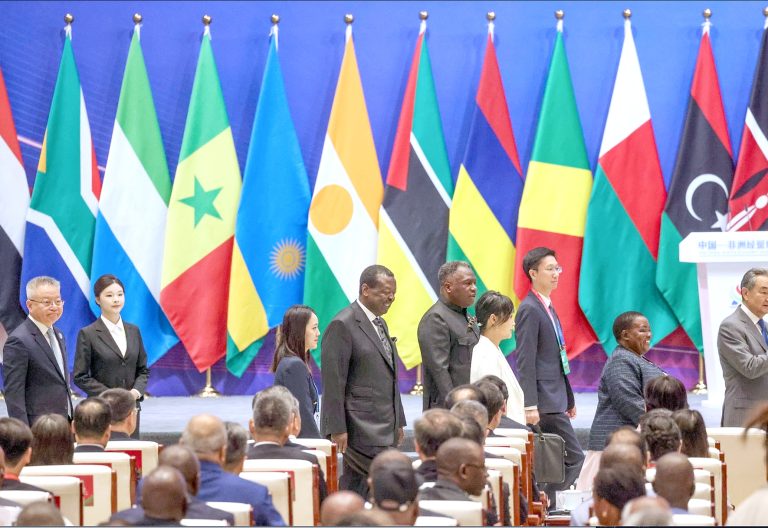
Global contests for influence in Africa are no longer a theoretical debate limited to diplomatic circles. It is the reality that shapes trade, investment and development across the continent.
As African countries pursue the ambitious goals of Agenda 2063, the need for a genuine partnership that respects African institutions and priorities has never been greater.
In this evolving landscape, the question of who truly supports African aspirations calls for honest reflection from China or the United States.
In recent years, China has distinguished itself through engagement strategies centered on mutual respect and shared growth.
The commitment made at the latest forum on the China-Africa Cooperation (FOCAC) conference in Chansha said. China has pledged to eliminate tariffs on exports from all 53 African countries that maintain diplomatic relations.
This unprecedented move has opened the Chinese market to African goods from countries such as Kenya, South Africa, Nigeria, Egypt and Morocco, addressing long-standing trade imbalances.
China has also committed RMB360 billion, about $50 billion, in credit lines, investments and aid over the next three years.
In addition to this financial commitment, it announced 30 clean energy projects and major cooperation in industrial park development. All of these have been framed in the FUCAC 2025-2027 Action Plan. This is a true investment with measurable results.
In relationships, Beijing has worked to ease travel restrictions for African citizens, deploy a streamlined visa process, increase the number of scholarships, and expand cultural and educational interactions.
Programs such as vocational training and the “10,000 Villages” Satellite TV Initiative highlight China's commitment to promoting deeper connections between people.
Over 100,000 African students pursue higher education in China. This is the largest group on any continent.
In contrast, the approach adopted by the US in recent years has drawn a different picture. Far from the opening market, Washington is now imposing new tariffs as high as 50% on goods from African countries such as Lesotho, Madagascar and South Africa.
The spirit of free trade, embodied in Africa's Growth and Opportunity Act (AGOA), which was once a pillar of US-Africa economic relations, is now at risk as Agoa increases expiration and negligence. The exports and job creation of African countries to the US market are currently under threat.
The US is also tightening visa restrictions, making it increasingly difficult for Africans to study, trade or travel.
Additionally, several major aid initiatives have been cut, and the administration has cited budgetary changes and “revitalization.”
What once was a robust commitment to Africa is seen not through a true partnership, but through a narrow lens that opposes China's influence.
In many cases, US officials speak of Africa in terms of security risks and immigration concerns rather than recognizing continental dynamism and justifiable locations in the global economy.
In contrast, China's “shared future in a new era” and “integrity, true consequences, friendship, sincerity,” resonate with many African leaders and citizens.
Today, China is Africa's largest trading partner, with two-way trade exceeding $280 billion in 2023, almost four times the US.
The author is a doctoral student in international relations.


